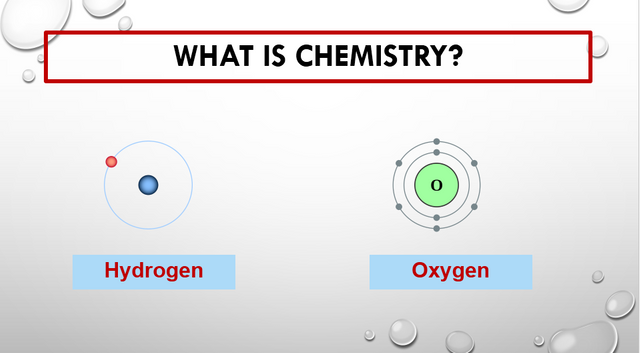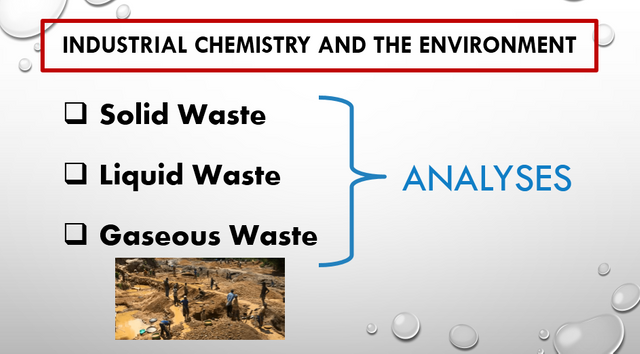The Relevance of Industrial Chemistry and the 21st Century Industrialization Challenges

Introduction
The make up or constitution of a matter is the essence of its classification or identification. A unique make up is the chemistry. When we look at materials and/or products, they are identified by their composition and elements that come together to form the product. We can therefore say that:
- There can be no chemistry without Association.
- Chemistry is coming together of entities to form a whole.
- The association can occur naturally or induced.
- Understanding of the composition can be carried out by experts in the laws of nature; these are scientists and/or technologists.
- The transformation of these materials to useful products, is the work of manufacturers or industries.

It is therefore possible to define Industrial Chemistry as the application of the unique composition and properties of matter for production of useful products for/by manufacturing industries.
Industrial Chemistry – Opportunities for Graduates
Industrial Chemistry may well be defined as the branch of Chemistry which applies physical and chemical processes towards the transformation of raw materials into products that are of benefit to humanity.
The transformation follows set guidelines which could require size reduction, blending and various reactions to form the new products.
Graduates must therefore know the opportunities available for them at graduation. The industrial sectors of any economy can be divided into:
- Primary Sector – Extraction of raw materials (mining, agriculture)
- Secondary Sector – Manufacturing: production of finished or end-use products – factories.
- Services sector – Consumer goods supply and maintenance.
- Quaternary/Knowledge sector – Intellectual activities – education and research.
- Quinary sector - High level decision makers in government and industries.
The employment of the people depends strongly on the primary industries.
The secondary sector is usually labour intensive and therefore requires cheap and available labour. With improved technology, manual labour demand has been significantly reduced.
The service sector (tertiary) provides services such as insurance, banking, tourism and restaurants.
The Quaternary/Intellectual sectors deal with education and training of the human resources as well as research and innovation.
The Quinary sector: the decision making by government and industry on the development of the economy.
The Successful Industrial Chemist
Everything on earth is based on chemistry. However, chemistry is considered a difficult subject by many students in the university. Only those inclined to science and technology desire it in their choice of subject combination. These set of students are usually inquisitive and determinative. They are usually successful in their career choice. An Industrial Chemist is most successful in the following:
- Fibre and textile industries.
- Chemical production plants such as paints, cosmetics, soaps, fertilizers and explosives.
- Plastic industries/synthetics.
- Petrochemical industries.
- Metallurgical industries such as steel, alloys for various purposes.
- Glass equipments, lenses, jars, panes, etc.
- Manufacturing industries such as ceramics, cement factories.
- Food industry (food preservatives, flavourings, etc.)
- Pharmaceutical industries.
Industrial Chemistry and the Environment
The products of the industrial sectors are deployed in the environment. Decay and abuse of these products are responsible for the environmental pollution. The industrial chemist has the solution to the environmental pollution.

The solid, liquid and gas wastes are analysed and the chemistry established. When the reaction processes are reversed, then, the environment is cleaned up.
The Future Needs and Industrial Chemistry
The future, the 21st Century is going to depend on qualified graduates of Science and Technology. New materials, alternative energy sources, and environmental safety will form the challenge for the future.
Improved understanding of the Chemistry of the matter is needed. The understanding of politics and availability of industrial raw materials must also be reached and addressed. Research and development efforts must be encouraged by government and industry. Public awareness on the right application of materials and conservation of known raw materials has to be encouraged.
Nigerians are capable of meeting the 21st Century with success only if we are willing to devote appropriate resources to:
- Human Resource Training.
- Indigenous Raw Materials Development.
- Political will to enforce appropriate extant laws to save or enhance the environment.
Conclusion
The future of Industrial Chemistry is bright and is capable of enhancing industrial development in Nigeria.
It was a privilege to prepare an anniversary lecture in preparation for the Industrial Chemistry day in one of the Polytechnics in Akwa Ibom State, Nigeria and I am glad to share this with you.
References
- What Is Industrial Chemistry
- Aftalion, Fred (1991). A History of the International Chemical Industry. Philadelphia: University of Pennsylvania Press. pp. 14–16.
- https://www.academicinvest.com/science-careers/chemistry-careers/how-to-become-an-industrial-chemist
- Singh, Kirpal (July 2012). "17.2". Chemistry in Daily Life. PHI Learning Private Limited. p. 132.
- Higgins, Stan (April 2013). "European Chemicals Industry:A review
- All images used are screenshots of my powerpoint created for the presentation.
I am your Research Assistant @Uyobong. We hope to meet again tomorrow for some helpful educational research tips and information. Feel free to use the comment section of this post to ask questions so we can interact the more.